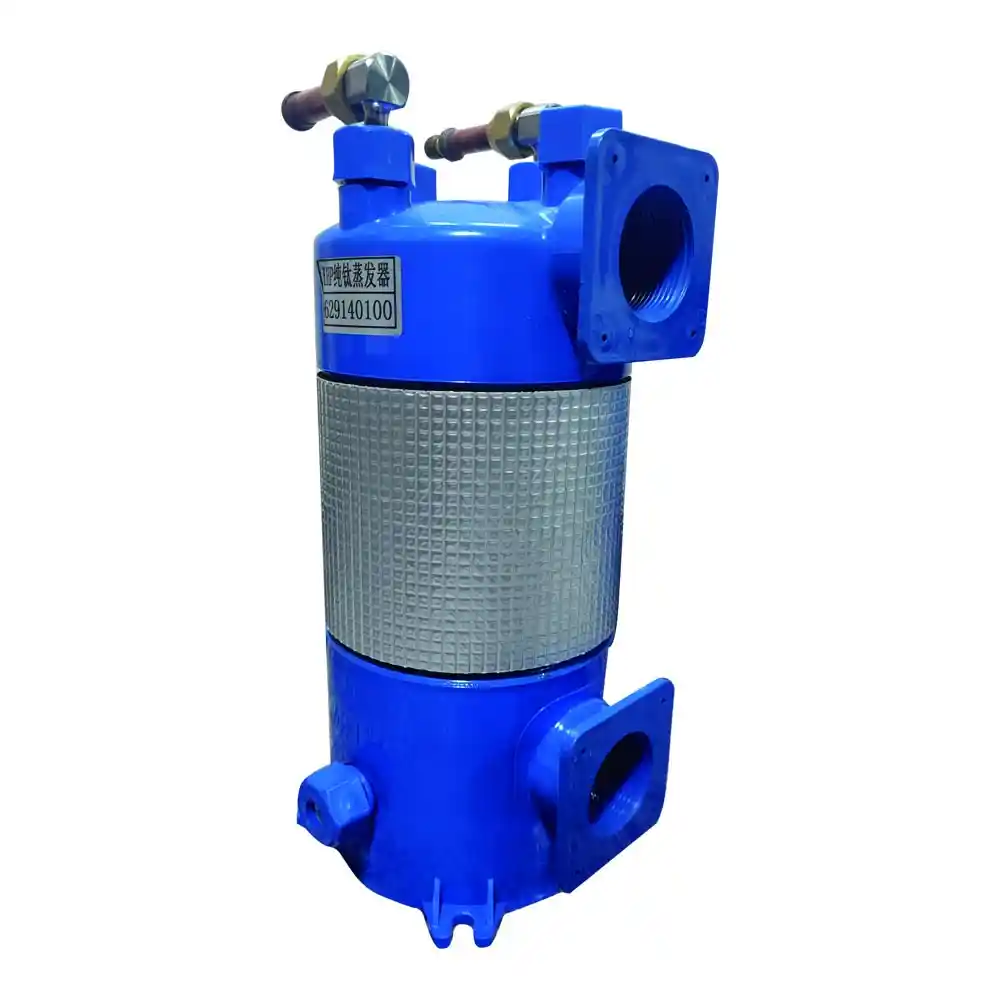Introduction
The raw material preparation for titanium coil testing plays a crucial role in ensuring the quality and performance of titanium coil heat exchangers. This article focuses on the testing process of the titanium coils used in heat exchangers, specifically those with titanium tubes and a PVC blue-colored shell. The objective is to highlight the importance of rigorous testing and quality control measures to validate the integrity and functionality of the titanium coil heat exchangers.
1. Titanium Tube Testing
Titanium tubes are the key components of the titanium coil heat exchangers, and their quality and reliability are of utmost importance. The testing process involves several stages to ensure the tubes meet the required specifications and performance standards.
1.1 Visual Inspection
During the visual inspection, each titanium tube is carefully examined for any visible defects such as cracks, scratches, or surface irregularities. This step helps identify any apparent issues that may affect the overall performance of the heat exchanger.
1.2 Dimensional Measurement
The dimensional measurement is conducted to verify that the titanium tubes meet the specified dimensions, including diameter, wall thickness, and length. Precise measurements are crucial to ensure proper fit and compatibility within the heat exchanger assembly.
1.3 Ultrasonic Testing
Ultrasonic testing is performed to detect any internal defects in the titanium tubes, such as voids, inclusions, or discontinuities. High-frequency sound waves are directed through the tubes, and the reflected waves are analyzed to identify any potential flaws that may compromise the structural integrity.
1.4 Pressure Testing
Pressure testing involves subjecting the titanium tubes to high-pressure conditions to assess their resistance to leakage or failure. The tubes are pressurized with a specified fluid, and any pressure drop or signs of leakage are carefully monitored. This test ensures that the tubes can withstand the operational pressures of the heat exchanger.
2. PVC Shell Testing
The PVC shell serves as the protective outer layer for the titanium coil heat exchanger. It is essential to conduct thorough testing of the PVC shell to ensure its durability, insulation properties, and compatibility with the titanium coils.
2.1 Visual Inspection
Similar to the titanium tubes, the PVC shell undergoes a visual inspection to identify any visible defects or imperfections. This step ensures that the shell is free from cracks, warping, or discoloration that may affect its functionality or aesthetics.
2.2 Mechanical Strength Testing
The mechanical strength of the PVC shell is evaluated through various tests such as tensile testing and impact testing. These tests assess the shell’s ability to withstand external forces, impacts, and deformations without compromising its structural integrity.
2.3 Chemical Resistance Testing
Chemical resistance testing is performed to evaluate the PVC shell’s resistance to chemical exposure, including acids, alkalis, and other corrosive substances. The shell is exposed to specific chemicals, and any signs of degradation or deterioration are carefully observed.
2.4 Thermal Insulation Testing
The thermal insulation properties of the PVC shell are assessed to ensure efficient heat transfer within the heat exchanger. The shell is subjected to temperature differentials, and the heat loss or retention is measured to determine its insulation effectiveness.
Summary of Titanium Coil Testing Results
The following table summarizes the testing results for titanium tubes and PVC shells used in the titanium coil heat exchanger:
| Test | Titanium Tubes | PVC Shells |
|---|---|---|
| Visual Inspection | No visible defects | No visible defects |
| Dimensional Measurement | Within specified dimensions | Within specified dimensions |
| Ultrasonic Testing | No internal defects detected | N/A (Not applicable) |
| Pressure Testing | Withstands specified pressure | N/A (Not applicable) |
| Mechanical Strength Testing | Meets strength requirements | Withstands specified impact and tensile tests |
| Chemical Resistance Testing | Resistant to corrosive substances | Resistant to chemical exposure |
| Thermal Insulation Testing | N/A (Not applicable) | Meets insulation requirements |
Note: The above table provides a general overview of the testing results and may vary depending on specific test criteria and standards.
In conclusion, the rigorous testing of titanium tubes and PVC shells is essential to ensure the quality, performance, and durability of titanium coil heat exchangers. Through visual inspections, dimensional measurements, non-destructive testing, and functional tests, any defects or discrepancies can be identified and addressed, ensuring the integrity and functionality of the heat exchangers.


